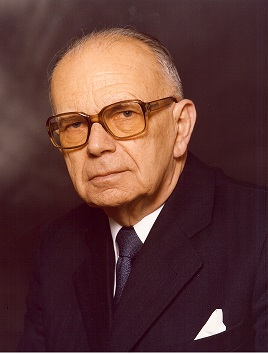Dr. Alfred Ferstl

Personalia
Born:
Died:
Profession:
Persecution:
Imprisonment 12.03.1938 - 14.02.1939,
Buchenwald concentration camp 14.02.1939 - 03.05.1939,
Released in 1938,
Banned from the place
KZ Number:
Memberships
Curriculum Vitae
Alfred Ferstl was born in Leoben, the son of a railroad official. At the age of 15, he became a member of the Lützow Leoben secondary school fraternity. After graduating from high school in 1928, he went to Graz to study law and joined the Traungau Graz student fraternity in 1928. He completed his studies with a doctorate in law in 1933 and, after completing his court practice, was appointed a judge at the district court in Leoben in 1936.
From 1934, he was active in various functions in the VF.
After the Anschluss, Otto Ferstl was arrested by a gendarme and two SA members on March 12, 1938 and taken to the district court prison in Leoben. Because the charges against him could not be proven, the extensive preliminary proceedings were dropped in the summer of 1938, but he was not released. On April 5, 1938, he was removed from office and his salary was reduced to two-thirds, and on July 30, 1938, he was dismissed from the civil service "due to his political activities in the 1930s" on the basis of the proceedings initiated against him pursuant to § 28 para. 1 of the Constitutional Transition Act of June 19, 1934, because his "remaining in his post would be detrimental to the reputation of the administration of justice". His relatives were granted a maintenance allowance of 657 RM, which was paid out in three-monthly installments.
On the basis of the Gestapo's protective custody order of 6 October 1938, signed by Reinhard Heydrich (1904-1942), head of the RSHA in Berlin. October 1938 Az. IID - F 1551, Otto Ferstl was initially transferred to Graz at the beginning of 1939 and then, at the beginning of February, via Vienna, Salzburg, Munich and Hof, to the Buchenwald concentration camp on the following grounds:
"According to the findings of the state police, he [Ferstl] endangers the existence and security of the people and the state through his behavior, in that he acted in a particularly spiteful manner against National Socialists in the influential positions he held in the former Austria until the integration of the Ostmark into the Reich and, due to his anti-people attitude, gives rise to the fear that he will act against the National Socialist state if released."
Due to a typhus epidemic that broke out in the camp, Otto Ferstl was arrested on May 3, 1939 and initially returned to Leoben, but was banned from the city and then moved to Graz, where he had to report to the Gestapo for several months.
He was employed as a clerk in the law firm of Dr. Neumann from June 1, 1939 to September 30, 1940, but was refused admission to the bar due to an objection from the NSDAP. In the spring of 1940, he was drafted into the German Air Force and did his military service with the FLAK in Slovakia from May 17 to July 20, 1940. In the meantime, from October 1, 1940 to April 9, 1942, he was able to work as an accountant and finally as an authorized signatory at the Graz-based forwarding company J. Schellander, where he was placed in the UK. On April 10, 1942, he was drafted into the air force again until the end of the war. He works as a file clerk for the motor transport unit in the supply department and manages the vehicle fleet. As conditionally fit for war service, he was deployed in various departments in Vienna-Kagran, Klagenfurt, Villach, and from Easter 1945
in St. Johann im Pongau. His last rank was corporal.
After the war, he initially worked again as a judge at the Leoben district court. On July 25, 1945, he was appointed by the British military government as a Higher Regional Court Judge and Head of Court. As Chairman of the People's Court Senate, he had to deal with former National Socialists and with the restitution of aryanized assets in the Restitution Mission.
Citations
Krause, Peter/Reinelt, Herbert/Schmitt, Helmut (2020): Farbe tragen, Farbe bekennen. Katholische Korporierte in Widerstand und Verfolgung. Teil 2. Kuhl, Manfred (ÖVfStG, Wien) S. 67-69.
